Audi A7 VS Hyundai Inster – Specs, Efficiency & Price Comparison
Find out now which car fits your needs better!
The Audi A7 (Hatchback) is powered by a Diesel MHEV, Petrol MHEV or Plugin Hybrid engine and comes with a Automatic transmission. In comparison, the Hyundai Inster (SUV) features a Electric engine and a Automatic gearbox.
When it comes to boot capacity, the Audi A7 offers 535 L, while the Hyundai Inster provides 280 L – depending on what matters most to you. If you’re looking for more power, you’ll need to decide whether the 630 HP of the Audi A7 or the 115 HP of the Hyundai Inster suits your needs better.
There are also differences in efficiency: 1.20 L vs 14.30 kWh. In terms of price, the Audi A7 starts at 55000 £, while the Hyundai Inster is available from 20500 £.
Compare all the key specs now and find out which model fits your lifestyle best!
Audi A7
The Audi A7 effortlessly blends elegance with dynamic performance, making it a standout in the luxury coupe segment. Its sleek silhouette and innovative technology create a driving experience that is both exhilarating and sophisticated. With a focus on comfort and advanced features, the A7 caters to those who seek both style and substance in their automotive choice.
details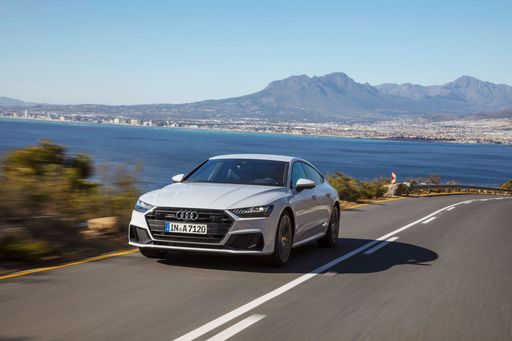 @ audi-mediacenter.com
@ audi-mediacenter.com
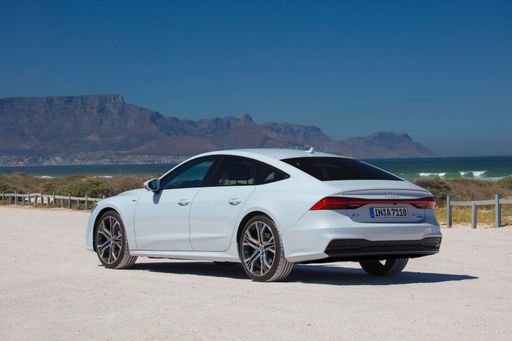 @ audi-mediacenter.com
@ audi-mediacenter.com
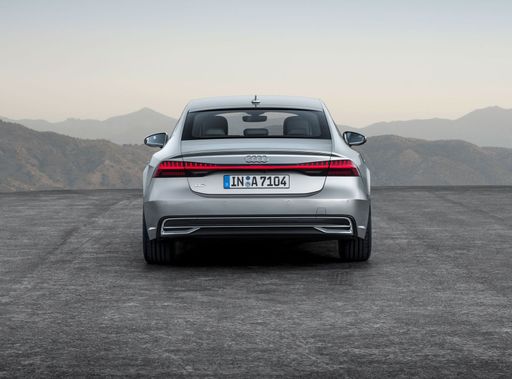 @ audi-mediacenter.com
@ audi-mediacenter.com
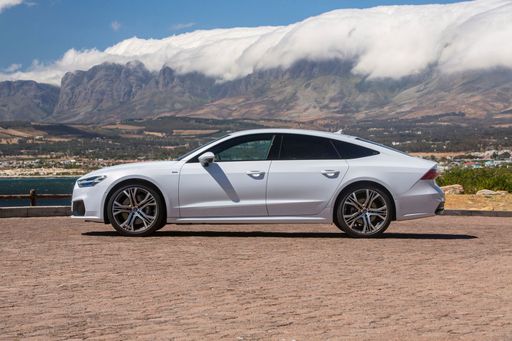 @ audi-mediacenter.com
@ audi-mediacenter.com
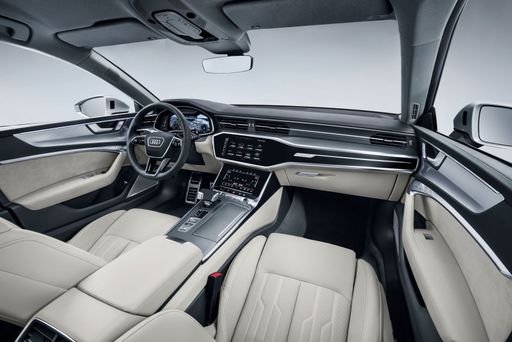 @ audi-mediacenter.com
@ audi-mediacenter.com
Hyundai Inster
The Inster has quickly captured the attention of automotive enthusiasts with its striking design and dynamic performance. This model seamlessly blends advanced technology with comfort, making it an ideal choice for both daily commutes and adventurous road trips. With its spacious interior and innovative features, the Inster promises an exhilarating driving experience that doesn’t compromise on practicality.
details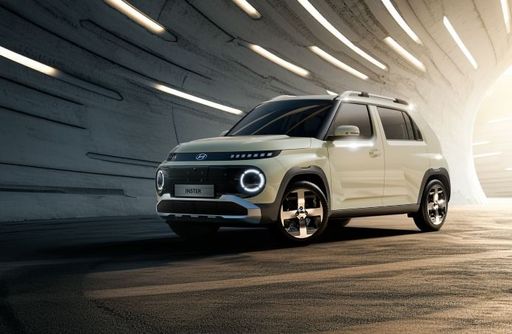 @ hyundai.news
@ hyundai.news
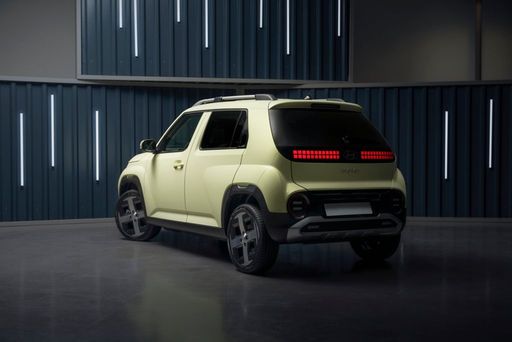 @ hyundai.news
@ hyundai.news
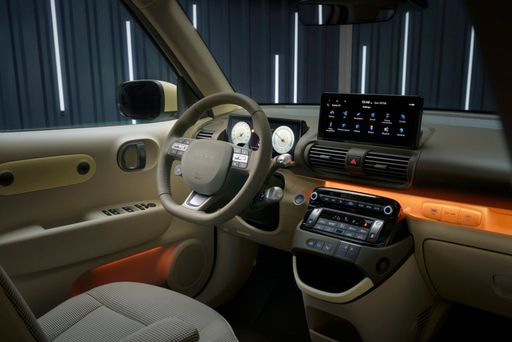 @ hyundai.news
@ hyundai.news

|

|
|
|
|
Costs and Consumption |
|
|---|---|
|
Price
55000 - 117900 £
|
Price
20500 - 25800 £
|
|
Consumption L/100km
1.2 - 12.2 L
|
Consumption L/100km
-
|
|
Consumption kWh/100km
-
|
Consumption kWh/100km
14.3 - 15.1 kWh
|
|
Electric Range
67 - 68 km
|
Electric Range
327 - 370 km
|
|
Battery Capacity
14.40 kWh
|
Battery Capacity
42 - 49 kWh
|
|
co2
28 - 276 g/km
|
co2
0 g/km
|
|
Fuel tank capacity
52 - 73 L
|
Fuel tank capacity
-
|
Dimensions and Body |
|
|---|---|
|
Body Type
Hatchback
|
Body Type
SUV
|
|
Seats
4
|
Seats
4
|
|
Doors
5
|
Doors
5
|
|
Curb weight
1770 - 2150 kg
|
Curb weight
1380 - 1433 kg
|
|
Trunk capacity
380 - 535 L
|
Trunk capacity
238 - 280 L
|
|
Length
4969 - 5009 mm
|
Length
3825 - 3845 mm
|
|
Width
1908 - 1950 mm
|
Width
1610 mm
|
|
Height
1422 - 1424 mm
|
Height
1575 - 1610 mm
|
|
Payload
510 - 600 kg
|
Payload
317 - 357 kg
|
Engine and Performance |
|
|---|---|
|
Engine Type
Diesel MHEV, Petrol MHEV, Plugin Hybrid
|
Engine Type
Electric
|
|
Transmission
Automatic
|
Transmission
Automatic
|
|
Transmission Detail
Dual-Clutch Automatic, Automatic Gearbox
|
Transmission Detail
-
|
|
Drive Type
All-Wheel Drive, Front-Wheel Drive
|
Drive Type
Front-Wheel Drive
|
|
Power HP
204 - 630 HP
|
Power HP
97 - 115 HP
|
|
Acceleration 0-100km/h
3.4 - 8.1 s
|
Acceleration 0-100km/h
10.6 - 11.7 s
|
|
Max Speed
245 - 280 km/h
|
Max Speed
140 - 150 km/h
|
|
Torque
370 - 850 Nm
|
Torque
147 Nm
|
|
Number of Cylinders
4 - 8
|
Number of Cylinders
-
|
|
Power kW
150 - 463 kW
|
Power kW
71 - 85 kW
|
|
Engine capacity
1968 - 3996 cm3
|
Engine capacity
-
|
General |
|
|---|---|
|
Model Year
2023 - 2024
|
Model Year
2025
|
|
CO2 Efficiency Class
E, F, B, G
|
CO2 Efficiency Class
A
|
|
Brand
Audi
|
Brand
Hyundai
|
Audi A7
The Audi A7 Sportback epitomises luxury and performance, seamlessly blending cutting-edge technology with exquisite design. This versatile model boasts a range of powertrains, including advanced mild-hybrid systems, delivering exceptional efficiency without compromising on capability. In this article, we delve into the technical specifications and innovative features that make the A7 stand out in the competitive luxury segment.
Elegantes Design trifft auf praktische Funktionalität
With its sleek silhouette and a coupe-like design, the Audi A7 makes a bold statement on the road. Measuring between 4,969 mm and 5,009 mm in length, the A7 offers an impressive presence while maintaining a sporty profile. The rear hatchback design adds practicality, providing a boot space ranging from 380 to 535 litres, accommodating everything from everyday shopping to weekend getaways.
Leistungsstarke Antriebe: Effizienz und Dynamik
The A7 is powered by a versatile lineup of engines, covering a wide spectrum of preferences. Offering petrol and diesel mild-hybrid options, as well as plug-in hybrid variants, drivers can choose between a range of outputs, from 204 PS to a staggering 630 PS in the RS7 performance model. This flexibility ensures that whether you prefer efficiency or burst-the-throttle performance, there’s an A7 for you.
Innovative Mild-Hybrid-Technologie
A standout feature of the A7 is its mild-hybrid technology, which enhances efficiency and reduces emissions. The integrated 48V electrical system assists the engine during acceleration, optimising fuel consumption and delivering a smoother driving experience. Depending on the model, fuel consumption figures range from 1.2 to 12.2 L/100km, reinforcing Audi's commitment to sustainable luxury.
Fahrvergnügen und Kontrolle mit quattro® Allradantrieb
The A7 is equipped with Audi's legendary quattro® all-wheel-drive system, ensuring superior grip and stability in diverse driving conditions. This system, combined with a choice between automatic and dual-clutch transmissions, delivers an engaging and responsive driving experience. With acceleration times from 0 to 100 km/h clocking in as little as 3.4 seconds in the high-performance RS7, the A7 is as exhilarating as it is refined.
Technologie und Vernetzung: Audi virtual cockpit
The Audi A7 is very much a car of the future, featuring the state-of-the-art Audi virtual cockpit. This digital display seamlessly integrates various vehicle functions and navigation into a single screen, ensuring that information is readily accessible without distracting from the driving experience. Furthermore, the MMI touch response system provides intuitive control over entertainment, navigation, and vehicle settings with just a touch of a finger.
Sicherheit und Assistenzsysteme auf höchstem Niveau
Safety is paramount in the design of the A7, which comes equipped with an array of advanced driver assistance systems. Features such as adaptive cruise control, lane-keeping assist, and emergency braking ensure that drivers can enjoy peace of mind on every journey. These technologies not only enhance safety but also contribute to a more relaxed driving experience.
Fazit: Die perfekte Symbiose aus Luxus und Leistung
The Audi A7 Sportback is a remarkable blend of style, performance, and technology. Its diverse powertrain options, innovative mild-hybrid systems, and luxurious attention to detail make it a standout choice for discerning drivers. Whether you're navigating city streets or cruising on the open road, the A7 promises an unparalleled driving experience.
Hyundai Inster
The automotive landscape continues to evolve, and at the forefront of this transformation is the Hyundai Inster, a dynamic model set to impress electric vehicle enthusiasts. As a compact SUV, the Inster embodies a blend of innovative technology, user-friendly features, and an eco-conscious design, making it a contender in the burgeoning electric vehicle market.
Powertrain and Performance
The Hyundai Inster is powered by an efficient electric drivetrain, offering two main battery options: a 42 kWh and a 49 kWh version. These options translate to power outputs of 97 HP and 115 HP, respectively, allowing drivers to choose based on their performance needs. The Inster accelerates from 0 to 100 km/h in 11.7 seconds for the 42 kWh variant, while the more powerful 49 kWh model reaches the same speed in an impressive 10.6 seconds, showcasing Hyundai's commitment to delivering engaging performance.
Range and Efficiency
One of the standout features of the Inster is its electric range. The 42 kWh model provides a range of 327 km, while the 49 kWh variants extend the range to 360 km and 370 km. This remarkable efficiency is complemented by consumption figures of 14.3 kWh/100 km for the 42 kWh variant and 14.9 kWh/100 km for the 49 kWh options. These figures ensure that the Inster is not only suited for city driving but also capable of handling longer journeys with ease.
Dynamic Design and Comfortable Interior
Aesthetically, the Hyundai Inster boasts a sleek and modern look, featuring a compact SUV profile that is both sporty and practical. The dimensions, measuring between 3825 mm and 3845 mm in length, with a width of 1610 mm and heights ranging from 1575 mm to 1610 mm, contribute to its spacious and comfortable cabin. The interior accommodates up to four passengers, making it an ideal choice for small families or couples.
Innovative Features
The Inster incorporates advanced technology geared towards enhancing the driving experience. Its automatic transmission, utilizing a reduction gearbox, ensures seamless gear shifts. Additionally, drivers will appreciate the array of smart features designed for convenience and connectivity, including advanced infotainment systems and driver assistance technologies.
Sustainability Credentials
Hyundai is dedicated to sustainability, and the Inster is a testament to this philosophy. With a carbon footprint of zero emissions, the Inster falls into the A CO2 efficiency class, making it a responsible choice for eco-conscious consumers. The absence of traditional emissions positions the Inster not only as an economical option but also as a proactive step towards reducing our environmental impact.
Conclusion
The Hyundai Inster stands out as a versatile and innovative solution in the electric vehicle segment. With a balanced approach to performance, efficiency, and sustainability, it caters to the modern driver’s needs and reflects the automotive industry's shift towards electrification. The future looks bright for the Inster, as Hyundai continues to pave the way for greener driving experiences.
The prices and data displayed are estimates based on German list prices and may vary by country. This information is not legally binding.
